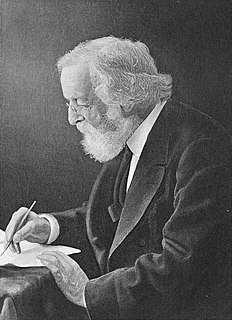A Quote by James Freeman Clarke
Amid all change, we desire something permanent; amid all variety, something stable; amid all progress, some central unity of life; something which deepens as we ascend; which roots itself as we advance; which grows more and more tenacious of the old, while becoming more and more open to the new.
Related Quotes
Amid the moon and the stars, amid the clouds of the night, amid the hills which bordered on the sky with their magnificent silhouette of pointed cedars, amid the speckled patches of the moon, amid the temple buildings that emerged sparkling white out of the surrounding darkness - amid all this, I was intoxicated by the pellucid beauty of Uiko's treachery.
What a place to be in is an old library! It seems as though all the souls of all the writers that have bequeathed their labours to these Bodleians were reposing here as in some dormitory, or middle state. I do not want to handle, to profane the leaves, their winding-sheets. I could as soon dislodge a shade. I seem to inhale learning, walking amid their foliage; and the odor of their old moth-scented coverings is fragrant as the first bloom of the sciential apples which grew amid the happy orchard.
Somewhere in our search for reality we have passed something by, something important that we no longer find amid the bits and pieces of disassembled matter-something vital that we cannot build out of these parts. There is surely something else, some piece of divinity in us, something that was before the elements, and that owes no homage to the sun.
Philip Glass, like [Virginia] Woolf, is more interested in that which continues than he is in that which begins, climaxes, and ends... Glass and Woolf have both broken out of the traditional realm of the story, whether literary or musical, in favor of something more meditative, less neatly delineated, and more true to life. For me, Glass [finds] in three repeated notes something of [a] rapture of sameness.
There are those to whom a sense of religion has come in storm and tempest; there are those whom it has summoned amid scenes of revelry and idle vanity; there are those, too, who have heard its "still small voice" amid rural leisure and placid retirement. But perhaps the knowledge which causeth not to err is most frequently impressed upon the mind during the season of affliction.
Universities were not meant entirely, or even chiefly, as stepping-stones to an examination, but that there is something else which universities can teach and ought to teach-nay, which I feel quite sure they were originally meant to teach-something that may not have a marketable value before a Board of Examiners, but which has a permanent value for the whole of our life, and that is a real interest in our work, and, more than that, a love of our work, and, more than that, a true joy and happiness in our work.




































